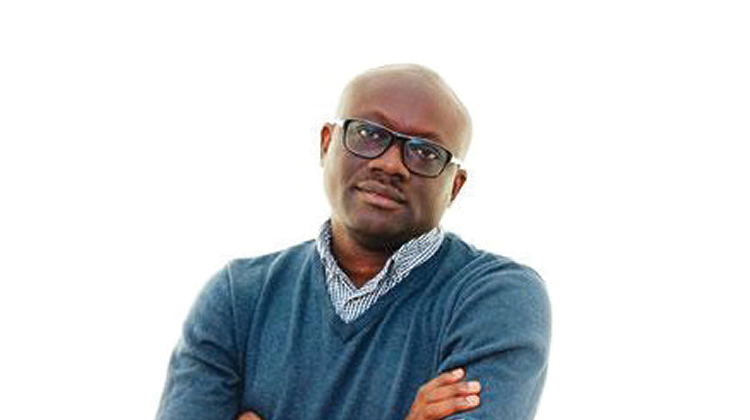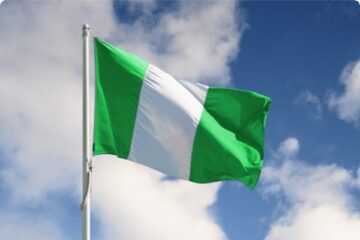In pursuit of a Pan-Nigerian identity [OPINION]

Simon Kolawole
By Simon Kolawole
When Chief Emmanuel Iwuanyanwu, the president-general of the Ohanaeze Ndigbo, died last month, it reawakened a topic I had been ruminating over for decades. I had been following the trajectories of politicians who aspired to be president of Nigeria at one point or the other and I had been genuinely startled by how many ended up as active members or leaders of ethnic associations. I have been asking myself for years: what changed? Why did they — having desired to lead a country of 250 ethnic groups and two dominant religions — decide to return to their ethnic cocoons? I am not interested in judging them, by the way; I am just trying to understand what happened to them.
Chief Olu Falae, former secretary to the military government and minister of finance, twice aspired to be president of Nigeria — in 1992 and 1999. But the last phase of his public career is as a champion of ethnic nationalism. He is a frontline member of the Afenifere, the Yoruba group. If Afenifere’s ideology is benign, the same cannot be said of the Oodua Peoples Congress (OPC) led by the late Dr Fredreick Faseun, who had also aspired to be president of Nigeria in 1992. The OPC, at least in its formative years, was a violent group that wanted to liberate the “Yoruba nation” from the “Fulani slavery in Nigeria”. Faseun could have been president of the same country he wanted to balkanise.
The late Dr Ibrahim Datti Ahmed was also one of the presidential hopefuls in 1992. A respected Islamic cleric, he shocked Nigerians when he criticised Nigeria’s controversial membership of the Organisation of Islamic Conference (OIC), promising that if he was voted into power, he would review the organisation’s relevance to the political and economic priorities of the country. That was an unpopular view in the core north which supported the OIC membership, although Christians loved his stand. But, several years down the line, he became the president-general of the Supreme Council for Sharia in Nigeria (SCSN). Ahmed could have been the president of the multi-religious Nigeria.
You can imagine my thinking when Iwuanyanwu, who died recently at 81, became the leader of Ohanaeze Ndigbo, the Igbo counterpart of Afenifere, in April 2023. He thrice tried to become president of Nigeria. In 1992, he vied for the presidential ticket of the National Republican Party (NRC) and was being touted as the preferred running mate to the late Alhaji Adamu Ciroma, who was favoured to pick the party’s ticket in a keen race with the late Alhaji Umaru Shinkafi before Babangida nullified the primary. In 1997, Iwuanyanwu also showed interest in the race as a member of the United Nigeria Congress Party (UNCP) and again in 1998 under the All Peoples Party (APP).
Back to my key question: why did people who tried to lead a multi-ethnic and multi-religious nation decide to retreat to their cocoons later in life? This could be an interesting focus of academic inquest. All I can do here is hazard a few guesses. The most common argument I have heard from people in informal conversations over the years is that politicians who once believed in a united Nigeria began to have second thoughts after seeing the “reality” that the country was built to fail by the colonialists. It is a common view down south that the British powers constructed Nigeria to favour the north, making other Nigerians who had genuinely thought otherwise to, finally, “see the light”.
Does this fully explain the phenomenon? I would not say so. The late Alhaji Shehu Shagari, a full-blooded Fulani man who was made the Turaki of the Fula Sokoto Caliphate in 1962 by the Sultan of Sokoto Siddiq Abubakar III, was president of Nigeria from 1979-83. He later led the Turaki Committee, a group of core northerners looking out for the northern interest within the Nigerian context. If people were retreating to their ethnic cocoons because of the way Nigeria was structured, why should a major beneficiary like Shagari need to toe the same line? The system supposedly favoured his region. Why should he mimic the game being played by those who felt marginalised?
A second argument is that many of these politicians decided to retreat to their cocoons after suffering from the political system and losing faith in a pan-Nigerian dream. Falae, for instance, was detained endlessly by the Gen Sani Abacha government over his June 12 activism. The notion in the south, correct or not, was that the north did not want Abiola to be president — even though northerners massively voted for him. Falae’s detention probably did something to him and he maybe lost the faith. Iwuanyanwu also probably took a dim view of the political set-up, concluded that there was an agenda to fence off the Igbo from Aso Rock and finally decided to go back to his roots.
A third argument, which I find quite useful, is that the Nigerian political landscape was shaped ab initio by sectionalism and regionalism. Jam’iyaar Mutanen Arewa, a northern socio-political group, produced the Northern Peoples Congress (NPC) in 1949 under the leadership of Sir Ahmadu Bello. In 1945, Chief Obafemi Awolowo co-founded the Yoruba group, Egbé Ọmọ Odùduwà, in London apparently to gain a foothold in the politics of Nigeria. In 1951, the group birthed the Action Group (AG) which ultimately displaced the NCNC (National Council of Nigeria and the Cameroons, renamed the National Convention of Nigerian Citizens) as the dominant party in the Western Region.
There is an unending argument that the entrance of AG marked the beginning of “tribalism” in Nigerian politics because of the way the Yoruba allies of the NCNC switched camps, but many parties operated along ethnic or sectional lines in the same era, notably the Borno Youth Movement, Igala Union, Igbira Tribal Union, Ibadan Peoples Party, Zamfara Commoners Party, and the Niger Delta Congress. The NPC, the biggest party, was an offshoot of Jam’iyaar Mutanen Arewa — “Society of Northern Youths” in Hausa, the northern lingua franca. Only the NCNC, co-founded by Herbert Macaulay and Dr Nnamdi Azikiwe, had a broader appeal at first. It later became limited to the East.
Historically, therefore, our politics was organised along ethnic and regional lines and this may partly explain why many politicians, including those who wanted to be president, find it easy to retire to their cocoons. In fact, there is this common argument that you are first an Igala or Esan or Shuwa before you are a Nigerian. This could well be a fourth argument. In other words, your ethnicity is your primary identity. Your Nigerian identity is secondary. Those who subscribe to this notion would likely place ethnic considerations first in whatever they do. I have also heard people say you cannot be a good Nigerian if you are not first a good Ibibio, but I doubt this can be scientifically proven.
President Olusegun Obasanjo, who ruled Nigeria twice — first as a military ruler and later as a civilian president — has always refused to identify with regional groups. He is critical of them. He once said he could not understand why anyone, after being Nigerian president, would reduce himself to being an advocate of sectional interests. He famously savaged Zik, Nigeria’s first president, for descending from the height of “Zik of Africa” to the depth of “Owelle of Onitsha”. In the case of Zik, though, I would think a time comes when you go back to your roots for cultural, not political, reasons. In fact, Zik being made Owelle of Onitsha could be the same as Obasanjo being made Balogun of Owu.
While I cannot categorically say why erstwhile national leaders transform to ethnic champions, I do know that we seem stuck at a stage in the evolution of our nationhood. For help, I will generously quote Emir Muhammadu Sanusi II, who tried to address this issue at a book launch by Sir Olaniwun Ajayi, the Yoruba leader, in 2009. Sanusi said: “My grandfather was a northerner, I am a Nigerian. The problem is that in 2009, we speak in the language of 1953. Before colonialism, there was nothing like Northern Nigeria. Before the jihad, there was no Sokoto caliphate. The man from Kano regarded himself as Bakane. The man from Zaria was Bazazzage. The man from Katsina was Bakatsine.”
He continued: “The northern kingdoms were at war with each other. They were Hausas, they were Muslims, they were killing each other. The Yoruba were Ijebu, Owo, Ijesha, Akoko, Egba. When did they become one? When did the north become one? You have the Sokoto Caliphate that brought every person from Adamawa to Sokoto and said it is one kingdom. They now said it was a Muslim north. The colonialists came, put that together and said it is now called the Northern Nigeria. Do you know what happened? Our grandfathers were able to transform to being northerners but we have not been able to transform to being Nigerians. The fault is ours.” In sum, we seem stuck in the past.
But identities evolve. Most of the people who call themselves Yoruba today were not called Yoruba before colonial rule. An easy example I use is the first Nigerian newspaper, Iwe Irohin for Egba ati Yoruba, established in 1859. As at 1859, Egba people were not classified as Yoruba. B.O.N. Eluwa, general secretary of the Ibo Federal Union, told the story of how he toured “Igboland” from 1947 to 1951 to convince “Igbo” villagers that they were indeed “Igbo”. David B. Abernethy wrote: “In the 1930s, many Aro and Onitsha Ibos consciously rejected identification as Ibos, preferring to think of themselves as separate, superior groups.” Many of our ethnic identities today are recent creations.
That said, is there now a room for us to progress to a truly Nigerian identity? Or has the evolution ended? The good news is that in terms of partisan politics, we have become better integrated. In the past, it was easy to pin one party to one part of the country. Today, the dominant parties are multi-ethnic and have nationwide spread. The not-so-good news is that national integration is still lagging behind. Many Nigerian leaders still talk in the language of the 1950s and 60s. Some younger Nigerians boldly assert their sectional identities on their social media profiles. As one generation gives way to another, we need to grow a pan-Nigerian mentality. The evolution must not stop.
To recap, I do not have problems with people asserting their identities. We all carry multiple identities — ethnic, subethnic, state, regional, geo-political, religious and so on. They are not at odds with nation-building. A Muslim asking for what he thinks is a better bargain for Nigerian Muslims is not less a Nigerian, except he is engaged in a sinister campaign. Also, I understand that nation-building is a constant conversation and negotiation. If all sections feel they are getting a good deal and are, therefore, comfortable being in Nigeria, that is lovely. Pressure groups, after all, have a place in nation-building. Nevertheless, I am uncomfortable with ethnic champions seeking to lead Nigeria.
Culled from TheCable










